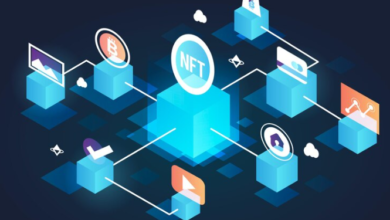Smart Contracts: Automating Transactions on the Blockchain

In the evolving blockchain landscape, intelligent contracts are revolutionizing business processes. They automate transactions securely and efficiently, reducing reliance on intermediaries and improving transparency. This article explores what smart contracts are, how they work, their benefits and challenges, and their applications across different sectors.
Understanding Smart Contracts
Smart contracts are self-executing agreements coded onto blockchains like Ethereum. They automatically enforce contract terms based on predefined conditions and operate as decentralized applications (DApps) without downtime or third-party interference.
These contracts use if-then logic: meeting a condition triggers a specific action. Placed inside the blockchain to keep things clear and lasting, these details are spread out among different network points, which makes it really hard for anyone to change them once they’re set up.
How Smart Contracts Work
Smart contracts are digital agreements that run on special blockchain networks, such as Ethereum or Binance Smart Chain. When a smart contract is created, it is turned into a computer program and placed on the blockchain. Each contract has its unique address.
To use a smart contract, you send transactions (like actions or requests) to its address. These transactions activate specific actions programmed into the contract. For example, when goods are confirmed delivered in a supply chain smart contract, it can automatically send payment to the supplier without needing anyone to make the payment manually.
Smart contracts are written in particular languages like Solidity or Vyper. These languages help developers create contracts with rules, functions, and logic that determine how they work.
Benefits of Smart Contracts
Automation and Efficiency: Smart contracts automate manual processes, reducing administrative overhead and streamlining operations. Transactions are executed automatically based on predefined rules, minimizing delays and errors.
1. Transparency and Trust:
Blockchain technology ensures transparency by recording all contract terms and actions on an immutable ledger. Participants can trust contract execution without intermediaries, fostering greater trust among parties.
2. Security:
Smart contracts leverage cryptography and blockchain consensus mechanisms, making them resistant to tampering and fraud. Once deployed, smart contracts are immutable and cannot be altered without network consensus.
3. Cost Reduction:
Smart contracts lower costs by eliminating middlemen and automating tasks, reducing expenses associated with traditional contract handling.
Challenges of Smart Contracts
Although smart contracts bring substantial advantages, they pose certain hurdles that require attention to encourage widespread use:
1. Complexity
Designing secure and efficient smart contracts requires expertise in blockchain development and programming languages. Bugs or vulnerabilities in smart contracts can lead to unintended consequences or security breaches.
2. Scalability
Blockchain networks face scalability issues, impacting the speed and efficiency of smart contract execution during periods of high demand.
3. Legal and Regulatory Compliance
The rules about smart contracts being legally binding can differ depending on where you are, so existing laws may need to be adjusted to fit with these new decentralized technologies.
4. Data Privacy
Storing sensitive data on a public blockchain raises concerns about privacy and confidentiality.
Applications of Smart Contracts
Smart contracts have diverse applications across industries:
1. Finance
- Automated lending and borrowing platforms
- Decentralized exchanges (DEXs) and liquidity pools
- Insurance claims processing
2. Supply Chain Management
- Automated tracking of goods and inventory
- Real-time payments to suppliers based on delivery milestones
3. Healthcare
- Patient data management and access control
- Prescription verification and drug traceability
4. Real Estate
- Property rental agreements and lease management
- Escrow services for real estate transactions
5. Legal Contracts
- Self-executing legal agreements for wills, intellectual property rights, and escrow services
Enhanced Security Features
Smart contracts leverage advanced cryptographic techniques to ensure security:
1. Digital Signatures:
Participants in a smart contract use cryptographic keys to sign transactions, providing a secure and verifiable authentication method.
2. Immutable Ledger:
Transactions executed through smart contracts are recorded on the blockchain, creating an auditable and tamper-resistant history of interactions.
3. Role of Oracles:
Smart contracts can use oracles to get information from outside sources. Oracles give data from off-chain to make smart contracts work. However, integrating oracles introduces potential security risks if not implemented carefully.
Interoperability and Standards
1. Blockchain Interoperability:
Projects such as Polkadot and Cosmos want to make it possible for different blockchain networks to work together. This means smart contracts can work smoothly on many platforms at once.
2. Standardization:
Efforts to establish common standards for smart contracts, such as ERC-20 (token standard) and ERC-721 (non-fungible token standard) on Ethereum, promote interoperability and facilitate the development of interoperable decentralized applications.
Future Trends and Innovations
1. Layer 2 Solutions:
Technologies like state channels (e.g., Lightning Network) and sidechains offer scalability solutions for smart contracts by processing transactions off-chain and settling them on the main blockchain.
2. Privacy-Preserving Smart Contracts:
Zero-knowledge proofs and privacy-focused blockchains (e.g., Zcash, Monero) enable confidential transactions while preserving the integrity of smart contracts.
Environmental Considerations
Energy Efficiency:
The environmental impact of blockchain networks, especially those using proof-of-work (PoW) consensus like Bitcoin and Ethereum, is a key topic. Shifting to more sustainable consensus mechanisms (e.g., proof-of-stake) can decrease the carbon footprint linked to smart contract execution.
Ethical and Social Implications
1. Decentralization and Governance:
Smart contracts redefine governance by enabling groups to self-govern using DAOs (decentralized autonomous organizations), where participants collectively make decisions based on rules encoded in smart contracts.
2. Inclusive Access:
Smart contracts can empower underserved populations by granting access to financial services, legal agreements, and transparent supply chains without relying on traditional intermediaries.
Incorporating these aspects will offer a comprehensive overview of smart contracts, covering technological, regulatory, and societal considerations shaping blockchain-based automation’s future.
Conclusion
Smart contracts are changing how agreements and transactions work, making them faster, safer, and more open. As blockchain technology improves, smart contracts will keep improving how businesses operate. We need to solve technical and legal issues to make them widely used. With more innovation and teamwork in blockchain, smart contracts will significantly change how we do business online.
Visit www.intogeeks.com for more blockchain-related insights.




